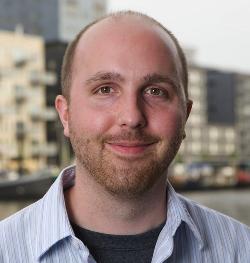
John W. Moravec, PhD
Even a casual observer can’t help but notice that the pace of change is accelerating, especially when it comes to technology. As we’ve joked here on the Minnov8 Gang in many previous shows, summers used to be pretty dead as far as topics were concerned and we had to pull ones out of our $^&% in order to have stuff to talk about every week.
But no more. Everything is moving faster and faster and, if Ray Kurzweil is right and The Singularity is Near, we need to listen to those who understand it and how it will impact us all — especially when it comes to our children and how they’re being educated to deal with exponential change.
One of the smart folks I read consistently is John Moravec, PhD, who is a, “…co-initiator of the Invisible Learning project; a co-founder of the Horizon Forum, a roundtable on the future of education at all levels; and am the editor of Education Futures (ISSN 1940-0934, http://www.educationfutures.com). I am also a faculty member in the Innovation Studies/Master of Liberal Studies graduate programs at the University of Minnesota.”

Vernor Vinge
Dr. Moravec just wrote this post on his blog and embedded the audio below about his interview with Vernor Vinge [Wikipedia | website], a retired San Diego State University professor of mathematics. Vinge is better known as a five-time Hugo Award-winning science fiction author. His works include True Names, Fast Times at Fairmont High, and Rainbows End. Most importantly, his 1993 essay “The Coming Technological Singularity,” argues that accelerating technological change will bring about the end of the human era as we know it, and that the world will become so complex and foreign to human observers, it will be impossible to predict what will happen next.
[media url=”http://www.educationfutures.com/res/educationfutures_vernor_vinge_interview.mp3″ width=”400″ height=”25″ jwplayer=”controlbar=bottom”]